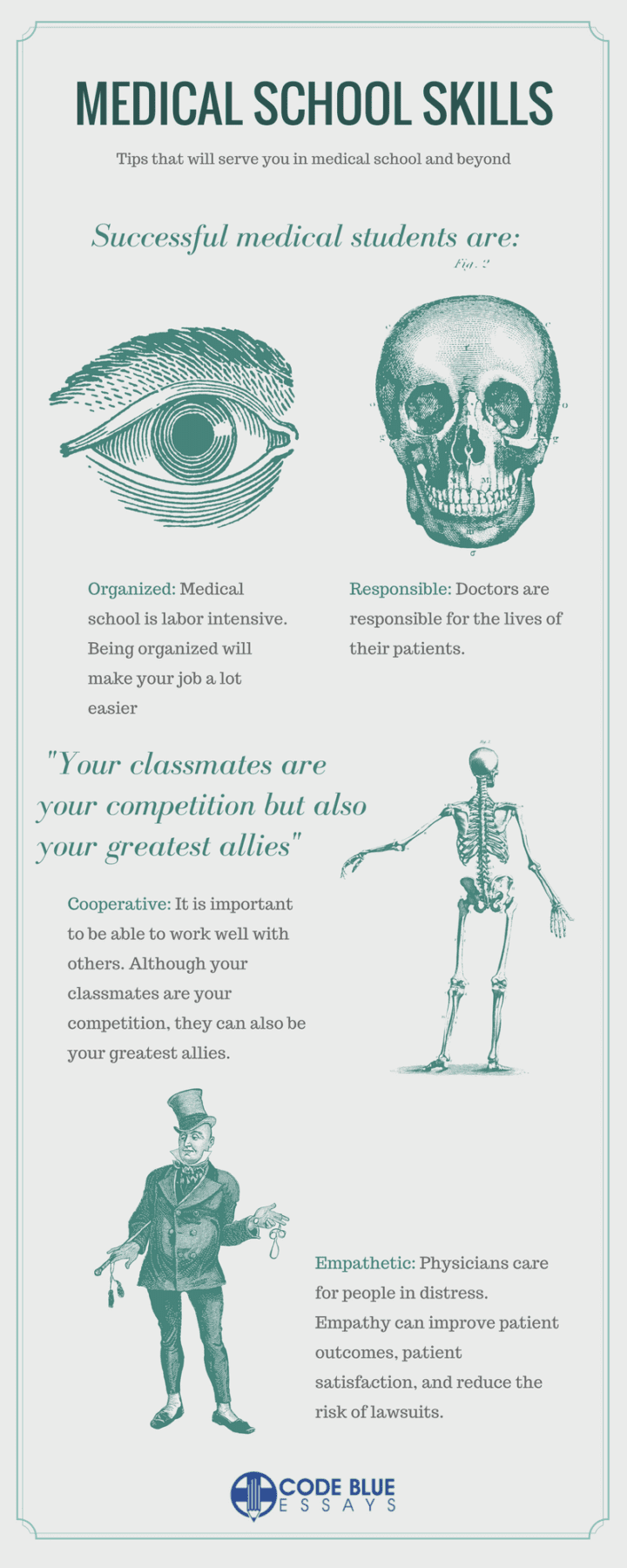Medical school is one of the most challenging academic journeys anyone can undertake. The rigorous coursework, steep learning curve, and limited personal time require medical students to adopt specific skills to thrive. Developing these skills not only helps students succeed academically but also prepares them for the demands of a medical career. Whether you are preparing to apply to medical school or are currently enrolled, these essential skills will guide you toward success.
Time Management for Medical Students
Efficient time management is fundamental for success in medical school. The overwhelming volume of coursework and clinical responsibilities can quickly become unmanageable without proper organization. Creating a structured plan to tackle daily, weekly, and long-term tasks is crucial.
Start by listing everything you need to accomplish and prioritizing your tasks based on deadlines and importance. Use tools like planners, calendar apps, or task management software to track your progress. Staying consistent with your schedule will reduce stress and help you achieve a balance between academic and personal responsibilities.
Responsibility in Medical School
Responsibility is a cornerstone of medical education and professional practice. As future healthcare providers, medical students must cultivate a strong sense of accountability to ensure their actions benefit patients and colleagues.
In medical school, this means completing assignments, clinical duties, and patient care tasks with diligence and accuracy. Responsible behavior also involves double-checking your work and ensuring no detail is overlooked, particularly during clinical rotations. By practicing responsibility early, you develop habits that will serve you throughout your medical career.
Cooperation Among Medical Students
Medical school is not just about individual performance; it’s also about teamwork. Collaboration with classmates enhances learning and provides emotional support during the often-intense training process. Unfortunately, some students fall into the trap of hyper-competitiveness, which can lead to tension and a less productive environment.
Instead of viewing peers as competition, focus on working together. Study groups, peer discussions, and collaborative projects are excellent ways to build camaraderie and improve your understanding of complex topics. Participation in extracurricular activities or student organizations can also strengthen relationships and foster a sense of community.
Assertiveness in Medical Training
Assertiveness is a skill that serves medical students well, both in academic settings and clinical environments. This skill enables you to express your opinions and advocate for yourself while maintaining respect and professionalism.
Physicians often need to assert their recommendations confidently when discussing treatment plans with patients or collaborating with other healthcare professionals. For medical students, assertiveness is equally important. It allows you to address mistreatment, push back against unfair workloads, and set boundaries when necessary. Developing this skill early will help you navigate difficult situations with poise and confidence.
The Importance of Self-Care for Medical Students
The demanding nature of medical education and practice puts students at a higher risk of burnout, depression, and mental health challenges. Statistics show that approximately 350 physicians in the United States die by suicide each year, underscoring the need for robust self-care strategies among aspiring doctors.
Self-care involves intentionally setting aside time for activities that bring joy and relaxation. This might include pursuing hobbies, exercising, spending time with loved ones, or engaging in mindfulness practices. Having interests outside of medicine provides a much-needed outlet for stress and helps maintain emotional resilience. If your mental health begins to suffer, seek support through your school’s counseling services or other mental health resources.
Tips for Avoiding Burnout in Medical School
Burnout is a common challenge in medical school due to the high workload and emotional demands. To prevent this, prioritize your physical and mental well-being:
- Maintain a balanced routine: Allocate time for study, rest, and leisure.
- Build a support system: Stay connected with family, friends, and peers who can provide encouragement.
- Set realistic goals: Break larger tasks into smaller, manageable steps to avoid feeling overwhelmed.
- Recognize the signs of burnout: If you feel consistently fatigued, unmotivated, or detached, take immediate steps to address the issue.
Building a Successful Medical Career
The journey through medical school is not just about earning a degree—it’s about cultivating the skills necessary to succeed as a physician. By developing time management, responsibility, cooperation, assertiveness, and self-care practices, you set the foundation for a fulfilling and sustainable medical career.
Remember that medical school is a stepping stone to becoming a competent and compassionate doctor. The habits and attitudes you develop during this time will shape the kind of healthcare professional you become.
FAQs
1. What is the most important skill for medical school success?
Time management is often considered the most crucial skill because it helps students balance coursework, clinical duties, and personal life effectively.
2. How can medical students prevent burnout?
Medical students can prevent burnout by maintaining a balanced routine, seeking support from peers and mentors, engaging in hobbies, and accessing mental health resources when needed.
3. Why is cooperation important in medical school?
Cooperation fosters a supportive learning environment, enhances knowledge sharing, and provides emotional support during challenging times.
4. How can medical students develop assertiveness?
Students can develop assertiveness by practicing clear and respectful communication, seeking feedback, and learning to advocate for themselves in both academic and clinical settings.




